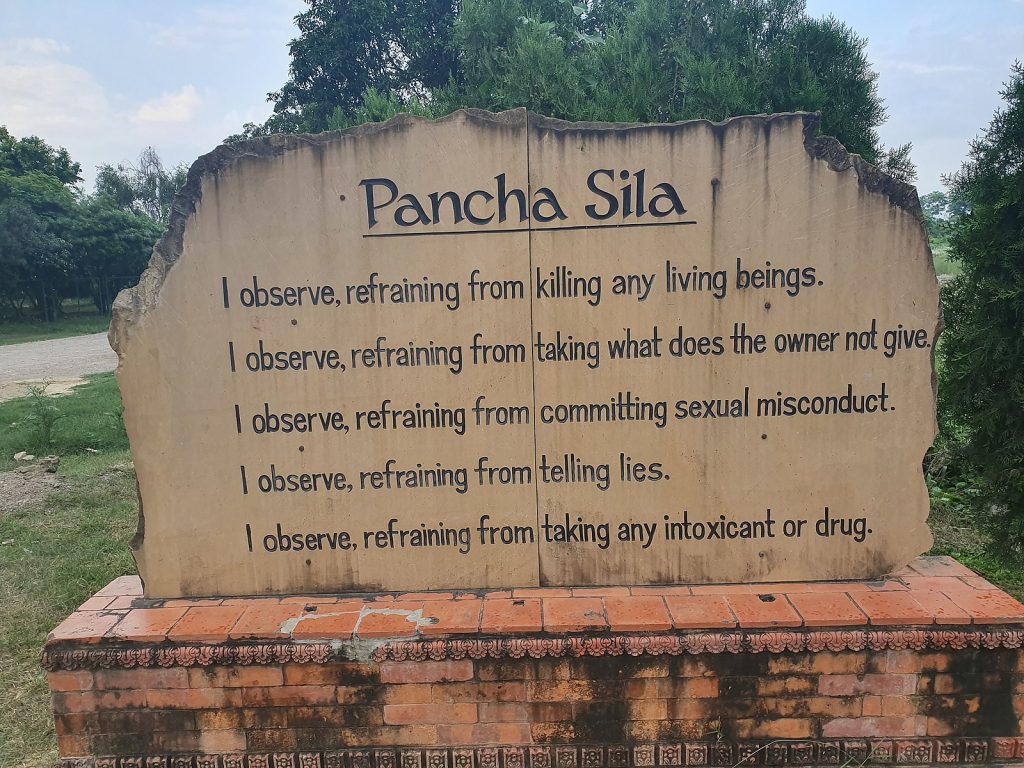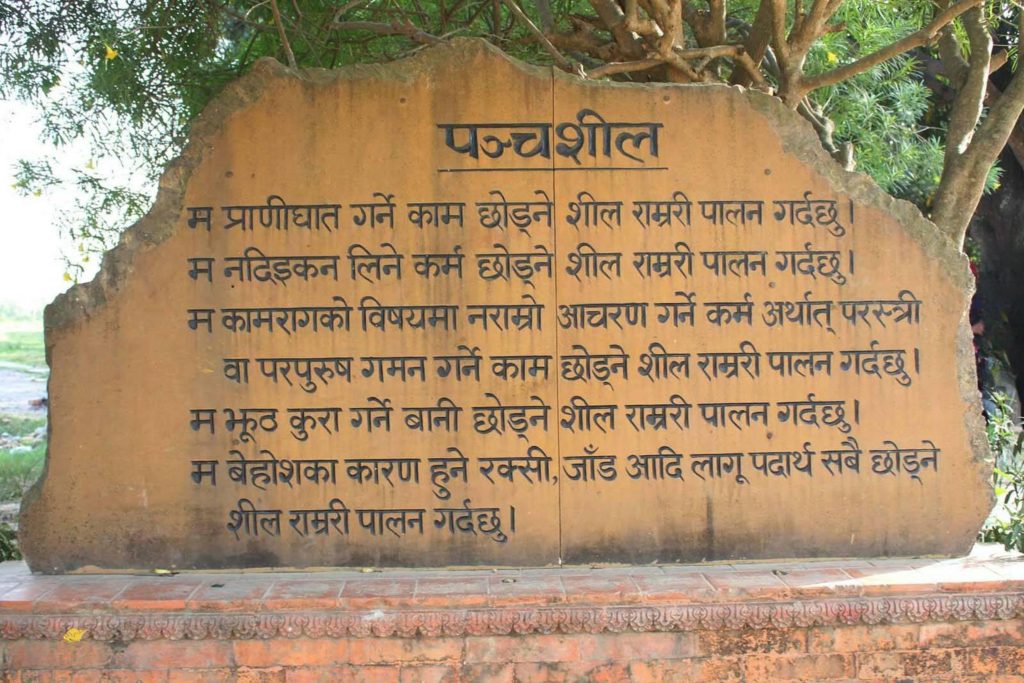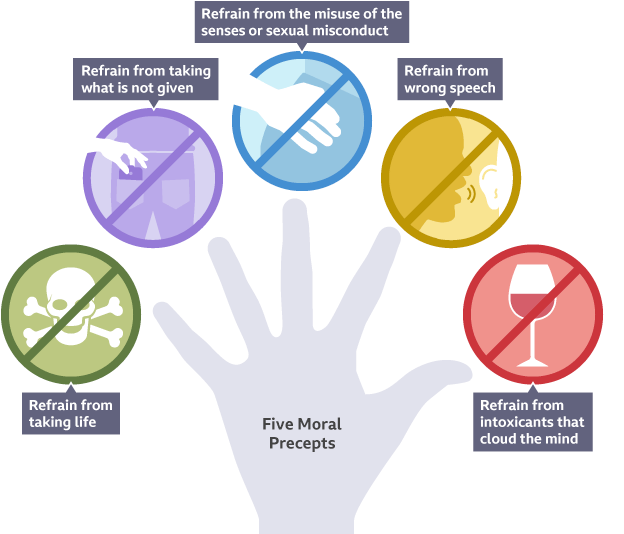The Five Great Vows
The Five Precepts
In Buddhism, the Five Precepts (often referred to as the Five Vows) form a fundamental ethical code. They serve as guidelines for personal conduct, helping practitioners to lead a moral and harmonious life
1. No Killing (Pāṇātipātā veramaṇī sikkhāpadaṁ samādiyāmi)
This vow involves abstaining from taking the life of any living being. It underscores the importance of compassion and respect for all forms of life. This can also be extended to include harm caused indirectly through actions that support violence.
2. No Stealing (Adinnādānā veramaṇī sikkhāpadaṁ samādiyāmi)
Practitioners vow not to take what is not given. This includes not only theft in the conventional sense but also avoiding exploitation, fraud, and taking advantage of others in any form.
3. No Sexual Misconduct (Kāmesu micchācārā veramaṇī sikkhāpadaṁ samādiyāmi)
This vow emphasizes responsible and ethical behavior regarding sexual activity. It often focuses on avoiding actions that cause harm, such as adultery, coercion, or exploitation. For monastics, it typically means complete celibacy.
4. No Lying (Musāvādā veramaṇī sikkhāpadaṁ samādiyāmi)
This vow involves abstaining from false speech, including deceit, slander, gossip, and malicious speech. It promotes honesty and integrity in communication, ensuring that one's words are truthful and beneficial.
5. No Intoxicants (Surā-meraya-majja-pamādaṭṭhānā veramaṇī sikkhāpadaṁ samādiyāmi)
The final vow is to refrain from consuming substances that cloud the mind and hinder one's ability to maintain mindfulness and clarity. This generally includes alcohol and drugs, though interpretations can vary regarding other mind-altering substances.


